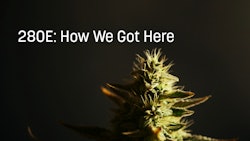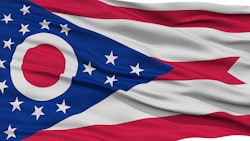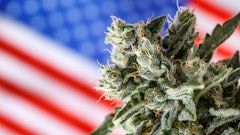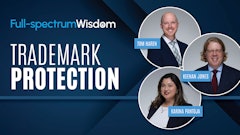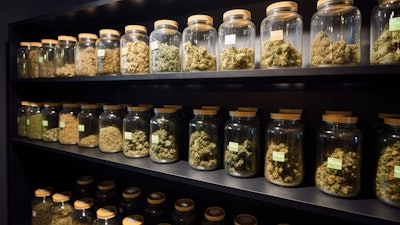
The Missouri Division of Cannabis Regulation (DCR) is allowing more than 14,800 cannabis products to return to dispensary shelves after verifying these products contain THC solely sourced from the state’s regulated market.
The DCR removed these products Oct. 20 from a recall list of roughly 63,000 products after previously deeming them a potential threat to public health and safety on Aug. 14. The mass recall from more than two months ago was issued because state officials believed licensee Delta Extraction LLC was bringing THC from outside Missouri to manufacture infused products, according to the state’s Department of Health and Senior Services (DHSS).
The roughly 48,500 products not removed from the recall list remain in storage, representing a significant financial loss for dozens of cannabis businesses whose products were tied to Delta Extraction’s manufacturing (should the state eventually order these products to be destroyed).
DCR suspended the manufacture’s license Aug. 2 in connection with a Metrc compliance investigation. State regulators then issued an administrative hold on the products before issuing the mass recall 12 days later.
Delta Extraction then filed a motion Aug. 16 for a temporary restraining order, arguing that the state had launched an “unlawful campaign to destroy Delta’s business through arbitrary, unjustified and unexplained administrative actions targeting Delta’s products,” according to the St. Louis Post-Dispatch.
Cole County Circuit Judge Cotton Walker ruled Aug. 30 that Delta Extraction did not have grounds to challenge the recall in court without first going through an administrative appeal.
RELATED: Missouri Judge Upholds Cannabis Product Recall
As of Aug. 16, Delta Extraction remained one of 78 licensed infused product manufacturing facilities listed as “approved to operate” on the DHSS website.
Under federal prohibition—as cannabis remains listed as a Schedule I drug on the Controlled Substances Act—it is unlawful to transport cannabis products across state lines in the U.S.
However, hemp companies skirting the 2018 Farm Bill have been distributing their psychoactive products via interstate commerce for the past few years based on a loophole that puts a 0.3% delta-9 THC threshold on a “dry-weight basis” in the definition of hemp. For example, a 100-gram chocolate bar could contain 300 milligrams of THC and remain compliant with the 0.3% threshold.
But transporting 300 milligrams of THC across state lines before infusing them into a 100-gram chocolate bar remains another story.
And this hypothetical could be the crux of the situation in Missouri, where state regulators accused Delta Extraction in August of using hemp-derived cannabinoids—that had been chemically modified or converted—for certain products and then distributing these products in Missouri, the Missouri Independent reported.
But licensed operators in Missouri, where adult-use sales launched on Feb. 3, 2023, questioned the state’s tracking software following the mass recall in August, and the DCR issued a guidance document in September.
One major question the DCR addressed was: If cannabis products are recorded in Metrc as passing all required testing, how can the products still present a potential health risk?
“Intentional falsification of Metrc records or noncompliance with test sample requirements can result in unreliable test results,” according to the DCR guidance. “Testing results in the regulated cannabis industry are only as good as compliance with sampling requirements and only as good as compliance with tracking requirements. Where records are falsified or sampling requirements are not followed, a passing test result does not mean all cannabis in a harvest or production lot has been appropriately evaluated.”
The division went on to explain that incorporating unregulated cannabis into Missouri’s regulated marketplace also can present health risks that required testing would not detect.
“Unregulated cannabis is often grown or processed with methods or treatments that cannabis in a regulated setting would not be subjected to,” according to the guidance document. “For example, chemical conversion of CBD to produce THC can result in product with harmful residual solvents, other harmful compounds, and even new compounds of unknown impact.”
The other question the DCR addressed was: If licensees can falsify tracking information in ways that cause public health risks, how can downstream licensees protect themselves from purchasing noncompliant products from “bad” actors?
“The risk of bad actors attempting to circumvent regulatory requirements exists in every regulated industry,” according to the document. “However, DCR is committed to investigating any evidence of tracking and testing evasion/manipulation and treating these events as particularly egregious violations. Where such behavior is found, DCR will use all possible avenues to ensure consequences are appropriately severe and public health is protected, as [state law] requires.”
With regard to the roughly 48,500 products remaining on the recall list, DCR officials must determine how these products were created and/or if the manufacturer of these products falsified records in the state’s track-and-trace system.
For now, the remaining products will remain on the recall list.










